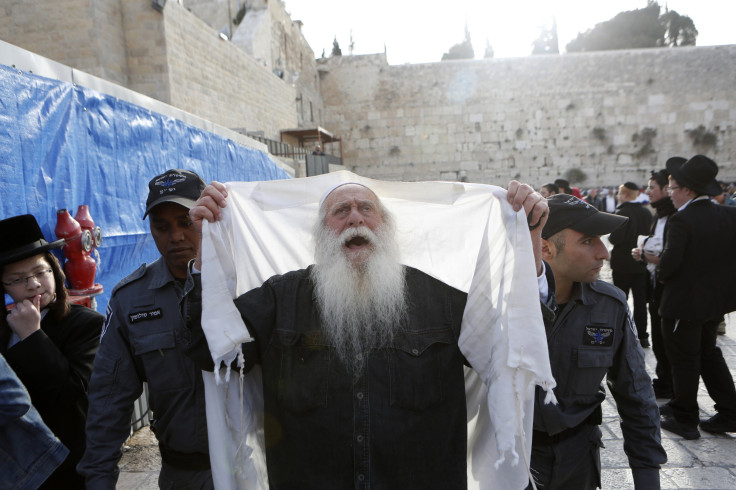Ultra-Orthodox Plan Protest Over Women Praying At Western Wall Wearing Traditional Prayer Shawls

After more than 18 months of arrests and court battles, a Jerusalem court ruled once and for all last month that women should be allowed to wear tallit -- the traditional Jewish prayer shawl -- and pray at the Western Wall, the holiest site in the Jewish world. Further, they should be allowed to do so without suffering detentions and interrogations by the police, or enduring jeers and abuse by onlooking ultra-Orthodox Jewish men.
Not so fast, says Rabbi Aharon Leib Shteinman, the head of the Lithuanian ultra-Orthodox community, who has organized thousands of ultra-Orthodox women to peacefully protest the ruling at the Western Wall on the morning of Friday, May 10, when the pro-tallit organization Women of the Wall are scheduled to hold religious services, Haaretz reported on Thursday. The service, Haaretz said, is intended to celebrate the court’s ruling, and will be the first time in 24 years women will be allowed to pray with traditional accouterments.
The controversy over women praying at the Wall, also called the Kotel, has been a sticky subject for many years in Israel. The recent trouble began back in 2009, when a woman was arrested for wearing a tallit under her coat and holding a Torah. The rate of arrests picked up over the next few years. Part of the religious opposition to the women’s’ actions lies, as one Rabbi wrote, in the community’s view that Women of the Wall are not pursuing religious equality so that they may actually pray; they believe they are doing so simply for the sake of feminism. Orthodox Jewish law also forbids women from wearing tallit or reading from the Torah.
In April, Judge Moshe Sobel overruled Orthodox objections by ruling that Women of the Wall were not violating any laws or disturbing the peace, a major victory for the group. One of the primary arguments used against them in court was that they were failing to uphold "local customs" by wearing the tallit.
Religious Minister Naftali Bennett called for “all sides to lower the flames by Friday.”
“I will try to the best of my ability to reach a compromise,” Bennett told Haaretz. “… The Wall is a holy place, not a battlefield, and I intend to resolve this issue that we have faced for years.”
There are expected to be more police at the Kotel tomorrow as a result of the competing prayer services.
© Copyright IBTimes 2024. All rights reserved.






















